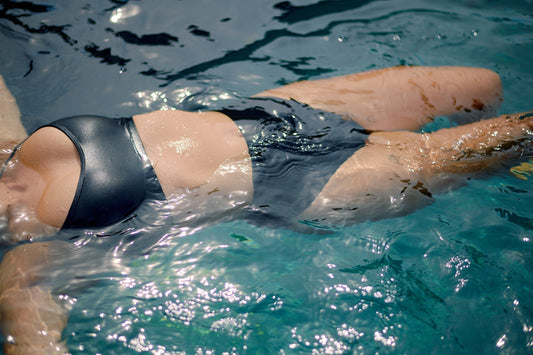
Re-Indigenizing Menstrual Health
Madeleine ShawWhen we were approached by our friends at The Menstrual Health Hub about partnering to create a Decolonizing Menstrual Health interview series, we were an instant Yes. As Canadian settlers committed to doing everything we can to support the cause of Reconciliation, Suzanne and I saw a unique opportunity to center Indigenous and Métis voices as a way to vastly grow our collective understanding of menstrual self-care, sustainability, ritual, intergenerational learning and more.
We reached out to our network, connecting in some cases with people with whom we have had a decades-long relationship, as well as others new to us. Our goal was to explore personal, rather than broadly representative, perspectives, respecting that each First Nation (not to mention its individual members) has its own traditions and teachings that should not be presented as universal.
We also wanted, in the case of centering Indigenous voices, to broaden the frame of “decolonizing” to be “Re-Indigenizing”, meaning to not simply identify and unpack colonial notions of menstrual health - in this case with Indigenous menstruators - but to explore ways to reclaim, uplift and otherwise use Indigenous wisdom to create a new, post-colonial narrative and power.
Aisle itself is situated on the tradition, unceded lands of the xʷməθkwəy̓əm (Musqueam), Skwxwú7mesh (Squamish), and Səl̓ílwətaʔ/Selilwitulh (Tsleil-Waututh) Nations. While we still also use the colonial names of Vancouver, British Columbia and Canada, we understand them as such: these are not “neutral” terms, and should be qualified as such. All of us on Turtle Island are ultimately occupying traditional Indigenous territory.
We also wish to acknowledge the abiding trauma of colonial treatment of Indigenous people by the Canadian government in the form of so-called Residential Schools, which operated across the country from the 1870s to the mid-1990s. Many of our interview participants reminded me of the fact that many of their family and community traditions and rituals were lost or interrupted due to their ancestors being imprisoned in these institutions and punished for even speaking their native languages, let alone participating in ceremonies. September 30th has been declared a national day of Truth and Reconciliation in Canada.
The interviews were largely intuitive and organic, however we did use the following questions as points of reference.
- What traditional Indigenous wisdom or traditions do you practice or are you aware of that inform your perspective and self-care around menstruation?
- How might these practices and wisdom be centered and shared as we grow a global conversation about menstrual health and equity?
- How can conversations about menstrual health from an Indigenous perspective bring us closer to the goals of decolonization, re-Indigenization and reconciliation?
Many thanks to the following individuals for their time and generosity in sharing their wisdom and stories as part of this series (click to view video interviews):
- Ecko Aleck (view video interview)
- Laura Grizzlypaws (view video interview)
- Jennifer-Lee Koble (view video interview)
- Sage Thomas (view video interview)
To get a sense of the potential of what non-Indigenous menstrual health and equity activists can learn from these and other Indigenous women and other menstruators, I quote from a recent Instagram post by Taq Kaur Bhandal: “I strongly feel that the more we tune into our menstrual cycles the more we can build respectful relationships with the land, with our bodies, and with the bodies of our neighbours and Indigenous hosts. Moving from a mindset of constant growth, linear progress, and a single story of human development to one of cyclical living, radical rest, and inner knowing can help us move towards decolonial futures.”
Rather than put my own frame on each of the remarkable conversations that I had the good fortune to be part of, I invite readers to dive in and hear firsthand from these powerful leaders.
Huy chexw (thank you in the Skwxwú7mesh (Squamish) language)!
Written by Madeleine Shaw, Co-Founder and Director of Partnerships & Impact



